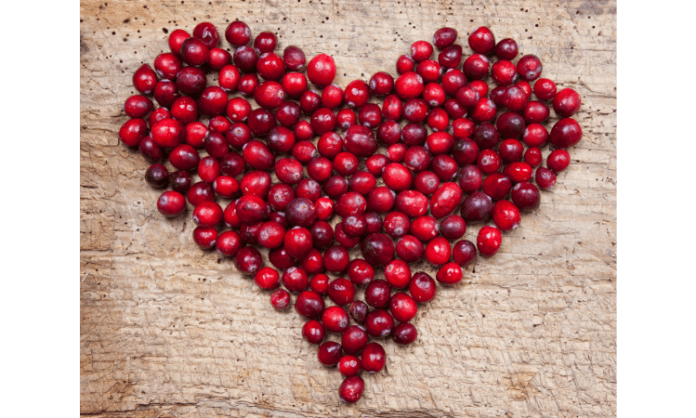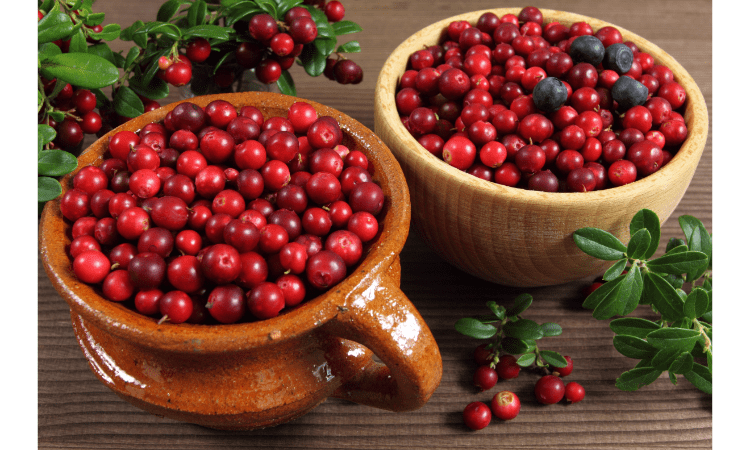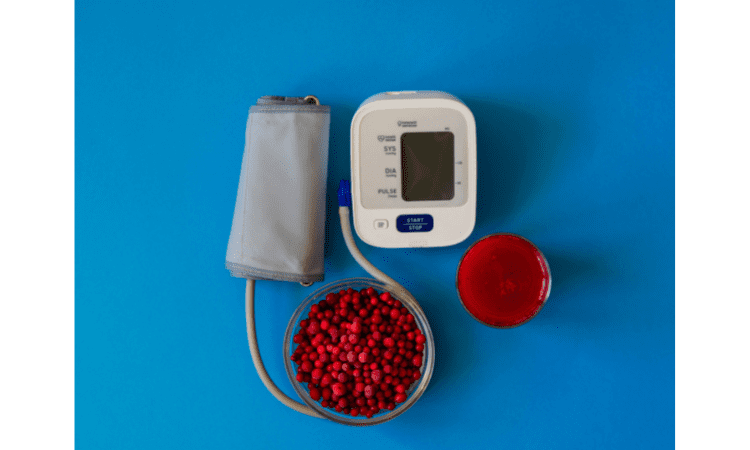
Cranberries are one of the most popular fruits in North America. They’re easy to grow, and they have a long shelf life, making them a natural choice for people who want to add healthy fruit to their diet. But what’s really interesting about cranberries is that they have been used for years as natural treatments for medical conditions like heart disease and urinary tract infections (UTIs). Let’s Know more about its benefit and effects on heart health.
What is cranberry?

Cranberry is a small, red fruit that grows on vines in cold climates. They are naturally high in antioxidants, vitamins, and minerals—such as vitamin C, folate, and potassium—that can help support your health.
It is also available in tablets or capsules. You can also find its juice to drink or use when cooking meat dishes such as stews and casseroles. All the forms of them usually provide a very good effect on our health.
Where do we find cranberry?
Cranberries are a fruit that grows on vines. They are found in the northern part of North America, including Canada and the United States. The most common varieties of cranberry grow in bogs and marshes, but there are other types that grow in less-wet climates as well.
Cranberries can be made into jelly, juice, or dried for storage purposes. They’re also used to make cranberry sauce for Thanksgiving dinner.
The nutritional benefits of cranberry

Cranberries are a great source of vitamins, minerals, and phytochemicals. These include manganese, vitamin C, and fiber. Cranberry juice is also low in sugar content, making it suitable for diabetics. The antioxidant compounds in cranberries called proanthocyanidins help prevent plaque from building up on your artery walls.
Its juice is also very effective to lower blood pressure in some individuals with hypertension by about 20 percent according to a study published in the journal Hypertension. This may be due to its high potassium content which helps relax blood vessels and reduce stress hormones that cause high blood pressure.
A study published in the Journal of Agricultural Food Chemistry found that drinking cranberry juice may protect against heart disease by preventing calcium buildup inside arteries that leads to atherosclerosis. Another study has shown that consuming this berry can reduce oxidative damage linked to cardiovascular disease.
How cranberry is important for our heart health

Cranberries are powerful food for heart health. They contain anthocyanins and proanthocyanidins, which have anti-inflammatory properties. They also reduce blood pressure and improve the efficiency of the heart’s muscle cells, making it easier for your heart to pump blood throughout your body. The antioxidants in cranberries can help prevent damage to LDL cholesterol particles caused by oxidation, making them less likely to clog arteries as they circulate through your bloodstream.
Its supplements are available at most drug stores and online retailers. If you choose to take cranberry capsules instead of eating fresh or dried cranberries, make sure they’re 100% pure freeze-dried extract without any additives like added sugar or preservatives—just plain cranberry juice.
How should we intake cranberry for the heart?
If you want to start taking its supplements, you should know that the recommended dosage is 100 milligrams taken in a day. The best time to have them is just before bedtime. If you are drinking its juice, it’s recommended that you drink no more than eight ounces in one sitting and no more than three of these servings per day.
The most effective way of preventing heart disease is through lifestyle changes such as eating healthy and exercising regularly. However, there are also natural remedies like cranberries that can help reduce your risk of developing cardiovascular problems.
Health benefits of cranberry

- Cranberries are rich in antioxidants. Antioxidants prevent the production of free radicals, which damage DNA and cellular tissues.
- They can improve heart health. The flavonoids found in cranberries have been shown to reduce LDL (bad) cholesterol levels, improve blood pressure, lower the risk for heart attacks or strokes, and increase good HDL cholesterol levels.
- They may also help prevent cancer by reducing inflammation throughout the body and preventing cell proliferation that leads to cancer growths on various organs like skin cells or bladder cells.
- In addition to helping reduce high blood pressure and improving cholesterol levels, they have been linked with helping treat urinary tract infections. They’re also known for improving digestion by relieving constipation from being caused by an overgrowth of bacteria called candida Albicans due to poor diet choices such as eating too many carbs without enough protein-based foods
- Many people who suffer from digestive issues such as constipation due to this kind of imbalance in their gut microbiome experience relief after taking its supplements regularly since they contain several nutrients including pectin fiber which helps stimulate peristaltic activity within your intestines so waste gets pushed out faster than normal.
Side effects of cranberry

There are some negative sides of cranberry that you need to be aware of.
- Allergic reaction: Some people may experience a mild skin rash or hives after taking it. If this occurs, stop taking it and seek medical attention immediately.
- Diarrhea: Taking too much can cause diarrhea, which can be quite uncomfortable for some people. It’s important to stick with the recommended dosage if you’re experiencing diarrhea from your medication—don’t try to self-prescribe more than what’s recommended by your doctor or pharmacist.
- Kidney stones: There have been reports that some people who take cranberries regularly have developed kidney stones due to their acidity levels (which are high in most types of cranberry). Make sure not only that you’re getting enough water but also making sure there aren’t any other causes for this issue – like dehydration caused by medications with negative effects such as constipation or dry mouth along with an increase in urine output due to dehydration itself.
If these symptoms persist despite treatment then please contact your physician immediately so they can determine whether further action needs to be taken such as changing medications etcetera.
Conclusion
We can see that the consumption of cranberry is beneficial for our health and overall well-being. It is also recommended that we should use it as a part of our daily diet to ensure complete wellness. There are various ways to intake this fruit such as by adding it to your salad or drinking some juice made from it. However, there are certain negative effects too so make sure you consult your doctor before consuming any supplement.
Also Read:- Health Benefits of grapefruit juice











